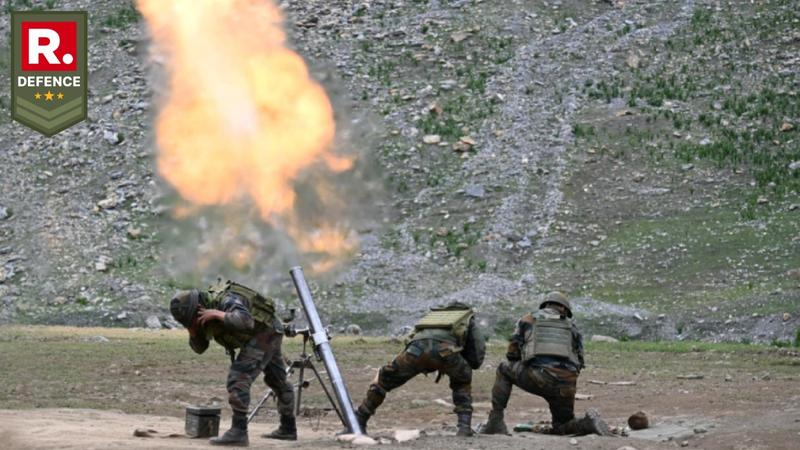Published 16:08 IST, November 13th 2024
Adaptive Defence is Essential, Not Optional, Says India's Defence Minister at Defence Dialogue
Singh stressed collaborative responses to transnational threats, noting that collective action is essential to address cyber and hybrid warfare.

New Delhi, India- In a call to address the rapidly evolving global threat landscape, Defence Minister Rajnath Singh outlined India’s commitment to building an "Adaptive Defence" approach. Speaking at the inaugural session of the Delhi Defence Dialogue (DDD) in New Delhi, hosted by the Manohar Parrikar Institute for Defence Studies and Analyses (MP-IDSA), Singh underscored the Modi-led government’s focus on creating a resilient, technologically advanced defence framework to counter modern security challenges. The theme of this year’s conference, “Adaptive Defence: Navigating the Changing Landscape of Modern Warfare”, provided a timely platform for exploring collaborative approaches in defence strategy, with the dialogue drawing participation from policy experts, military leaders, and strategic scholars.
Raksha Mantri highlighted adaptive defence as essential in the modern security context, characterizing it as a proactive rather than reactive strategy. “Adaptive Defence is not just a strategic choice; it is a necessity in our fast-paced world. Today’s defence demands continuous evolution to counter emergent threats effectively,” he stated. This approach, he explained, encompasses situational awareness, flexibility at strategic and tactical levels, resilience, and integration with next-generation technologies. “It is about cultivating the mindset to anticipate challenges and prepare proactively for the unknown,” Singh emphasized, urging the military to embrace agility and innovation.
Redefining Warfare: The Role of Emerging Technologies
Singh noted that warfare is increasingly conducted in the Grey Zone—where traditional tactics are augmented by unconventional methods like cyber and hybrid warfare. Emphasizing that conventional defensive measures must now adapt to these evolving tactics, he detailed India’s focus on leveraging emerging technologies such as drones, Artificial Intelligence (AI), and quantum computing. “India aspires to become a global hub for drone technology, contributing to our ‘Make in India’ and Aatmanirbhar Bharat programs,” he said. Singh highlighted initiatives such as the Innovations for Defence Excellence (iDEX) and ADITI schemes that incentivize domestic innovation in defence technology, strengthening India’s military-industrial ecosystem.

Stressing the importance of collective responses to shared security challenges, Singh remarked, “Interconnectedness is as much a blessing as it is a challenge. If our threats are transnational, so should be our solutions.” In his address, he advocated for collaboration across states and institutions to address threats that transcend national borders. As cyber threats, hybrid warfare, and technological advancements reshape the global security environment, the Defence Minister argued that India must adopt a multifaceted approach that fosters joint responses among states, non-state actors, and private sector partners.
Strengthening the Defence Ecosystem
To secure India’s defence capabilities, the government has introduced numerous initiatives promoting indigenous development and self-reliance. Singh cited examples of significant achievements, including the domestically produced Light Combat Aircraft Tejas, aircraft carrier INS Vikrant, and missile systems developed by the Defence Research and Development Organisation (DRDO). “These projects exemplify our commitment to self-reliance without isolation. We welcome foreign collaboration in R&D, co-production, and joint ventures, all within the broader framework of Make in India,” he asserted.
Acknowledging the necessity of international cooperation, he noted that global interdependence allows nations to overcome resource and technological limitations. Singh argued that the pursuit of robust defence systems in today’s globalised economy requires logical collaboration to access broader expertise, economies of scale, and advanced technology.

In light of today’s digital threats, Singh addressed the rise of psychological and information warfare, calling it an unprecedented challenge to national security. “The government is resolute in employing adaptive defence strategies to counter these digital threats,” he affirmed. This stance reflects the government’s dedication to maintaining a forward-looking posture against both physical and psychological warfare, with special emphasis on countering misinformation and cyber-attacks.
Defence Exports: Pushing for Economic Growth and Strategic Reach
India has also set ambitious goals for expanding its defence exports, aiming to reach Rs 50,000 crore by 2029. Notably, India’s defence exports now reach over 100 nations, with the United States, France, and Armenia as top recipients in 2023-24. Singh emphasized that these exports not only contribute to the nation’s economic goals but also bolster its strategic reach and global presence.
The Delhi Defence Dialogue serves as MP-IDSA’s flagship platform for addressing complex defence challenges, and fostering dialogue among policymakers, military experts, and scholars on the changing landscape of security.

The defence minister commended the DDD’s role in facilitating informed discussions and generating strategies for enhancing India’s defence posture. He expressed confidence that the DDD would pave the way for stronger strategic partnerships and more robust national security frameworks through shared expertise and collaborative innovation.
Among those in attendance were DG, MP-IDSA Ambassador Sujan R Chinoy; Vice-Chief of the Air Staff Air Marshal SP Dharkar; as well as civil and military leaders from India and abroad. The dialogue will continue to play a critical role in shaping India’s defence strategy as it navigates the increasingly complex geopolitical landscape.
Updated 16:08 IST, November 13th 2024




